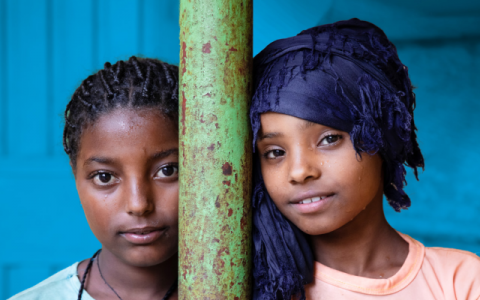
Racism and discrimination against children on the basis of their ethnic, linguistic and religious affiliation are widespread throughout the world. According to the recent UNICEF report Rights denied: The impact of discrimination on children, both phenomena affect education, health and access to birth registration and a fair and equitable judicial system.
The report shows, among other things, that children belonging to marginalised ethnic, linguistic and religious groups - in an analysis of twenty-two countries - are far behind their peers in reading skills. On average, students between the ages of 7 and 14 in the most advantaged group are more than twice as likely to have basic reading skills as those in the least advantaged group.
An analysis of the rates of registered children at birth - a prerequisite for access to basic rights - revealed significant disparities between the youngest of different religions and ethnic groups. For example, in the Democratic People's Republic of Laos, only 59% of children under 5 years of age belonging to the minority Mon-Khmer ethnic group were registered at birth, compared with 80% of children belonging to the Lao-Thai ethnic group.
"Discrimination and exclusion – reads the UNICEF website - aggravate deprivation and intergenerational poverty and cause worse results in terms of health, nutrition and learning for children, a higher probability of incarceration, higher pregnancy rates among adolescent girls and lower employment and earnings rates in adulthood".
According to the survey, discrimination and exclusion have long persisted for millions of children belonging to ethnic and minority groups, including in terms of access to vaccinations, water and sanitation services and a fair justice system.
The report is available on the UNICEF website in the dedicated news section.
Other materials and news items can be found on this website under the topic Racial discrimination, which can be reached from the "Topics" navigation menu.

